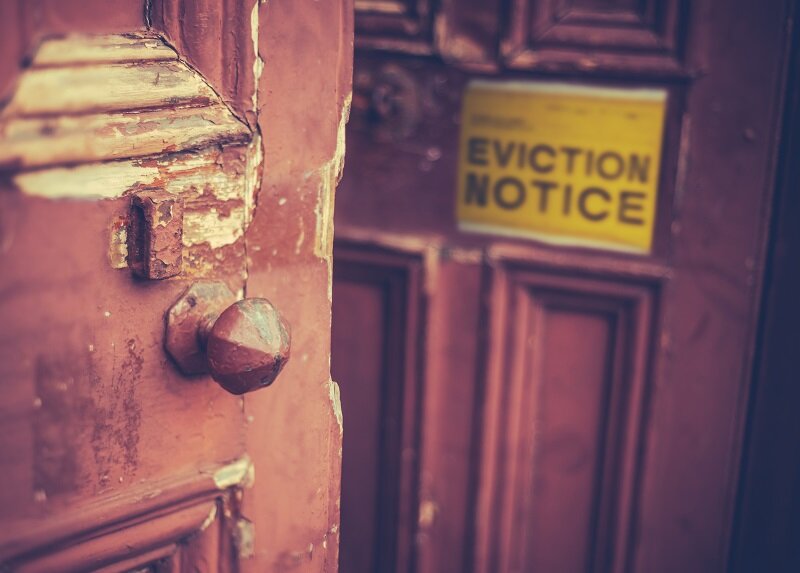
One of the drawbacks to being a landlord is dealing with squatters. Squatters have become a nuisance for landlords and people looking for roommates to help with the bills like rent, electricity, and property taxes that come with renting or homeownership.
A squatter is someone who occupies a building or portion of your property without paying a dime to live there. Essentially, they’re an illegal renter. While this sounds illegal, it’s surprisingly not. Eventually, if a squatter stays long enough, they can legally claim ownership of the property, as long as they meet specific standards under Idaho law.
Unlike trespassing, law enforcement handles squatting issues differently because they’re considered civil issues and take a lot more time legally to remove someone squatting from your home or property. It can become overwhelming if you’re going through the house selling process, learning the costs of selling a house in Boise, and dealing with squatters.
Therefore, knowing what rights a squatter has in Idaho is essential before taking any legal action. You’ll want to learn the difference between trespassers and squatters and what squatters’ rights are so that you can handle the eviction properly.
Squatters Rights in Idaho
Unlike a trespasser, squatters have rights in Idaho. The difference between a trespasser and a squatter is minimal, but legally, one is a criminal, and one is not. In many ways, squatters’ rights are similar to tenant rights. Since squatters are essentially unauthorized tenants, they retain many of the same rights.
Squatters’ rights in Idaho state that they cannot be kicked out or evicted from what they’re calling their home without legal notice. With a legal notice, you can evict a squatter from your home or property as long as you know how the law works and you do so before they get legal ownership of the property.
Adverse Possession Laws
One of the primary squatters laws in Idaho is the adverse possession laws. After a certain period of time, they can file an adverse possession claim to take ownership of the property.
When they apply for an adverse possession claim, they can potentially earn the legal right to own that real estate.
If a squatter is going to gain legal ownership of the property they’re in, they must meet stipulations. The first stipulation is that the squatter has to have a continuous occupation of the home for at least 20 years before they can make a possession claim to the court.
Once they reach the 20-year mark and are out of the statutory period, they can file a possession claim. They have to meet these additional requirements after that period of time.
Continuous and Unhindered Possession
Continuous possession means squatters must reside in the room, property, or home for at least 20 straight years. Continuous residence means there cannot be a period where there’s an interruption in squatting.
They cannot leave the property for weeks or months at a time. Otherwise, the 20-year period resets. It will also disqualify them from gaining legal possession of the property.
Exclusive Possession
Another requirement that the squatter must meet to gain legal possession of the property is exclusive possession. A squatter cannot have anyone else living with them for 20 years. Living without others means no roommates, children, or others because it will void their possession claim.
Actual Possession of Property
A squatter cannot just live on a property and attempt to gain legal possession. Squatters have to use and maintain the property as any owner would.
Maintaining the property includes keeping up with lawn care and keeping the property attractive as a proud homeowner would. If a squatter meets all other requirements for possession but doesn’t maintain the property, the court can deny their claim.
Tax Payments
If a squatter in Idaho is attempting to claim legal possession of the property, they must pay property taxes for 20 years. If they failed to pay property taxes during that time, there’s a good chance the courts would deny their claim.
Hostile Claims
Another requirement for squatters to apply for an adverse possession claim they have to have a hostile claim. Hostile claims aren’t violent or aggressive like the name suggests. It refers to a few different circumstances that are anything but cruel. Hostile claims circumstances are:
- Good Faith Mistake: A squatter relied on an invalid deed to the property when they occupied it or believed they were the lawful occupiers.
- Simple Occupation: The squatter started staying at the property without knowing who owned the real estate legally.
- Awareness of Trespassing: This is when the trespasser or squatter is fully aware that they’re entering a property they don’t own and know who the owner is.
Can You Remove a Squatter in Idaho

In short, you can remove a squatter in Idaho. Once you realize you have a squatter on your rental property or other, you’ll want to notify law enforcement as soon as possible, so they’re aware of the situation as you proceed with the eviction.
As previously mentioned, you cannot evict a squatter without legal notice in Idaho. You can attempt to file for an eviction notice and serve it to your “tenants,” but sometimes the courts will determine this is a civil suit. You’ll need to serve them with an unlawful detainer lawsuit if that’s the case. We’ll get more into that later.
While removing a squatter in Idaho is possible, the best thing you can do for yourself as a property owner is to try to prevent them in the first place. Some helpful things you can do to avoid squatters include:
- Check on your properties often to reduce the risk of squatters and trespassers (you can hire someone to help you with this if you’re unable to do it yourself)
- Have property security on your properties, like locks, cameras, etc.
- Place clear “no trespassing” signs in areas where squatters and trespassers might try to get in.
Can You Sell a House With a Squatter in Idaho
If you find yourself in a situation where you’ve vacated your home because you’re in the process of selling it and a squatter claims it as their own, this makes the process ten times more challenging. Legally, you cannot sell your home or a vacant property while there’s a squatter there which can take weeks, months, or even years to resolve.
You’ll likely need to go to court to remove the squatter, and if they try to claim they signed a lease agreement and legally live there, the process can be much more time-consuming. You won’t be able to sell your home while there’s a squatter there officially, so learning how to remove them is critical.
How To Get a Squatter Out of Your Home in Idaho
If you notice you have a squatter in your vacant property, you’ll first want to get in touch with the police so you can take appropriate legal action. Calling the police is the first critical step to serving illegal tenants with an eviction notice. Once you file all the paperwork, the eviction notice will be served, giving the squatter two options. They can pay rent they would owe or vacate the premises.
In a perfect world, the squatter will comply with one of the two options in the eviction notice. You’ll need to file an unlawful detainer lawsuit with the courts if they don’t. Filing an unlawful detainer lawsuit is long and requires you to take the squatter to court to prove that you’re the rightful property owner.
You’ll want to take the time to acquire all the legal documents that prove you’re the true owner. You’ll obtain a Writ of Restitution if the courts decide in your favor. You’ll then present this to your local law enforcement agency, so they can legally remove the squatter from your property.
Sometimes, your squatter will file for adverse possession. Adverse possession is when the squatter tries to claim the property you own as their own legally. If your squatter is trying to claim squatters’ rights to the property and files for adverse possession, then the process can take years to deal with.
Conclusion
Balancing the rights of squatters while ensuring your property is not being trespassed upon can be a tough challenge. Ensure you take counter steps to protect your property adequately to avoid the lengthy process of eliminating a potential squatter.
Call law enforcement first and start the eviction process as quickly as possible if you catch wind of a squatter on the premises. Remember that a squatter can be considered a trespasser if you manage to get ahead of the situation as soon as possible, making eviction much easier.
If you’re trying to sell a house fast in Boise, we can help you because we buy houses Idaho homeowners are trying to sell quickly. Cash home buyers in Kuna are always looking for new properties, so if getting rid of the home after dealing with squatters is your next move, we are here to help you start that new chapter.
